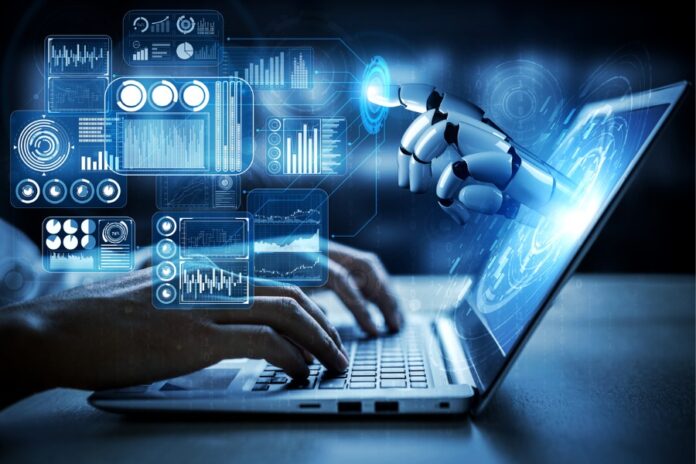
CHROs and their colleagues in Purchasing and Procurement should understand two things about artificial intelligence: It’s going to change the way we work in ways we can’t imagine, but it’s not going to do that any time soon.
Generative AI has demonstrated its power in making work more efficient and fast. But it’s new and relatively untested. The idea that AI’s performance today does not live up to its potential shouldn’t surprise anyone. When it comes to AI, demand and progress are often at cross-purposes, especially as technology vendors pitch solutions that aren’t quite there yet.
On top of that, the flood of products unveiled since last year bewilders many technology customers. On the one hand, they want time to understand how AI’s capabilities can address their needs. On the other, they’re pressuring vendors to keep up with developments. “Some of our customers, all they want to hear is that we’re thinking about AI,” said Ellen Loeshelle, director of product management – intelligence platform at Qualtrics. “Like I could say that in one sentence and get off the phone and they’d be happy.”
For more on AI in HR, HR Tech and an analysis of industry news,
download our 4Q Special Report here.
Hype Begets Confusion
While ChatGPT’s frenzied growth exposed shortcomings in the technology’s performance – troubles with solving math problems, for example – the consumer’s rush to adopt AI demonstrates an entrenched demand for simpler but more powerful technology solutions.
Feeding this is the wave of messages from technology vendors. Few companies have created truly original applications for generative AI, but they’re all talking as if they had. Read the white papers, press releases and advertisements of tech companies large and small, and you’ll find they credit their efforts with things like improved efficiency and decision-making, stronger workforce management and talent acquisition through advanced screening, analysis and pipeline management.
But demand and marketing can only speed product development so much, and AI’s on-the-ground growth may not be as advanced as people think. Just 5% of HR leaders say their department has implemented some form of generative AI, Gartner reports. Only 9% say they’re conducting some kind of pilot.
Some Things Stay the Same
That won’t slow down AI’s growth. More than 60% of the HR leaders Gartner surveyed said they’re participating in enterprise-wide discussions about leveraging generative AI. Fifty-eight percent are collaborating with IT leaders, and 45% are working with legal and compliance functions to explore potential use cases.
None of these downs and ups should be surprising. Generative AI is a new technology that was released to the public early in its lifecycle. And the foundations of HR technology may have fully embraced AI in theory only. At this year’s HR Technology Conference, you’d think that amid all the AI buzz, it would have been difficult for mundane solutions to stand out.
You’d think. As it happened, attendees reported a quiet, business-like conference that paid welcome attention to the industry’s basics. As an example, consider Manifest, winner of this year’s Pitchfest. The company allows employers to consolidate their workers’ retirement accounts in a way that simplifies access, explains their options and tracks savings. While those may not be the sexiest challenges employers face, benefits and benefits administration make up a sizable chunk of HR’s day. It’s not surprising, then, that such tools get the attention of practitioners.
For more on AI in HR, HR Tech and an analysis of recent industry news, download our 4Q Special Report here.
Image: iStock













